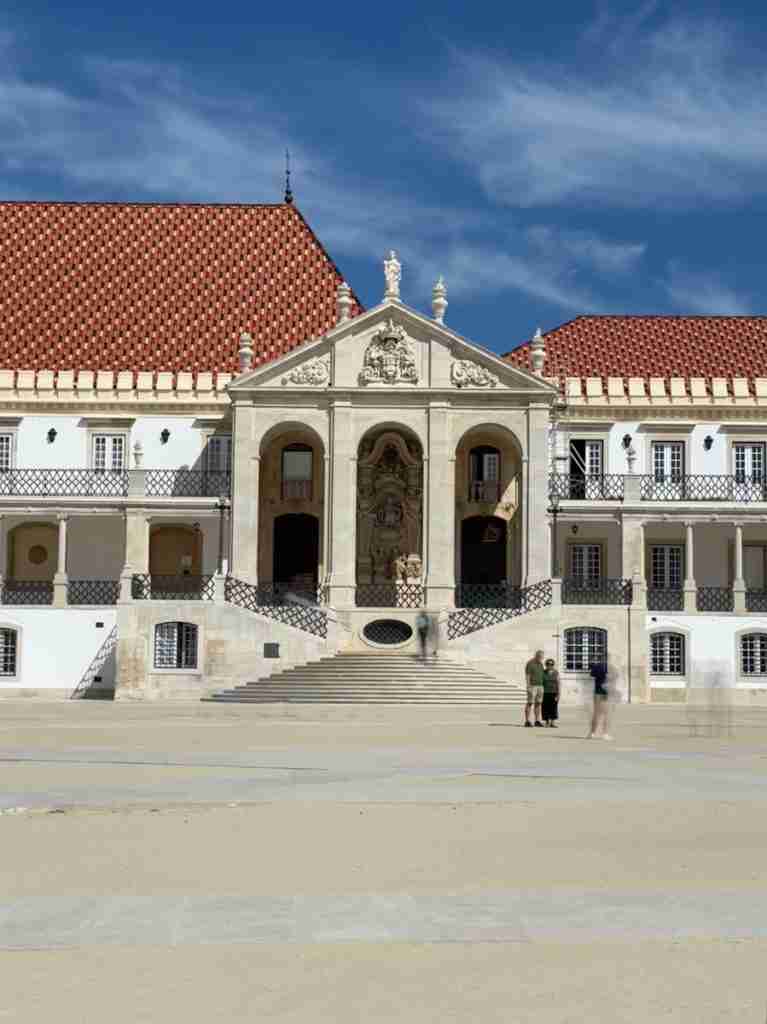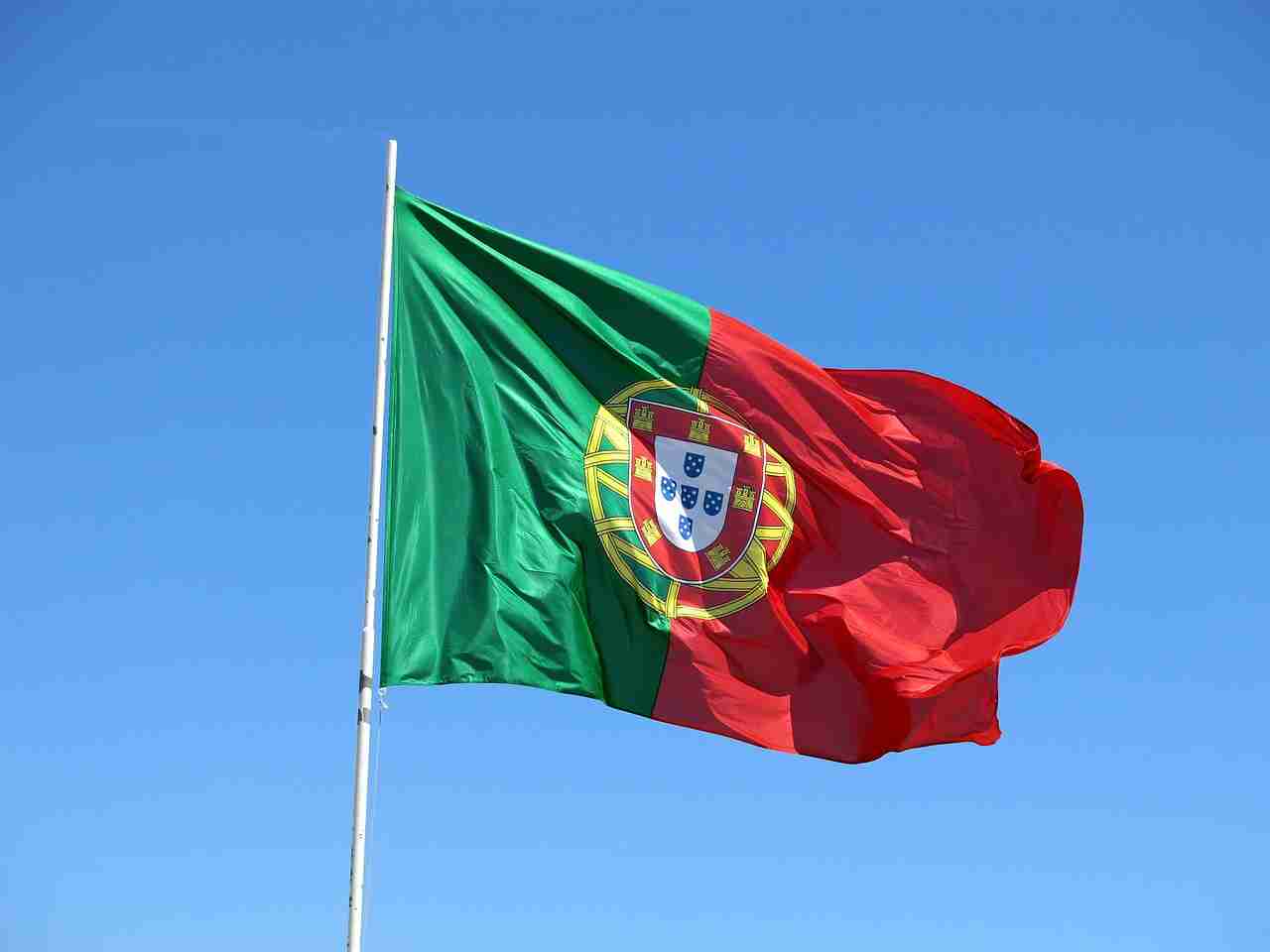24 Fun Facts About Portugal That Will Amaze You
1. Portugal is one of the oldest countries in Europe.
Portugal boasts a long and fascinating history, with its borders established in the 12th century. This longevity grants it the title of one of the oldest nations on the European continent.
Portugal’s rich past is evident in its numerous historical landmarks, from ancient castles to grand monasteries.
2. Portugal was once a major maritime power.
During the Age of Exploration in the 15th and 16th centuries, Portugal stood as a dominant force in seafaring and trade. Portuguese explorers ventured across the globe, establishing colonies and trade routes that profoundly shaped the world.
This legacy of exploration has left enduring marks on Portuguese language and culture, evident in places like Brazil and parts of Africa and Asia.
3. Lisbon is older than Rome.
Portugal’s capital, Lisbon, possesses a history that predates many other notable European cities. Archaeological finds suggest Lisbon was founded by the Phoenicians around 1200 BC, centuries before the rise of Rome.
Lisbon’s long history has resulted in a fascinating blend of architectural styles and cultural influences, visible in its historic neighborhoods and monuments.
4. Portugal is the world’s main cork producer.
Over half the world’s cork originates from the cork oak forests of Portugal. The country plays a vital role in the production of this natural and sustainable material.
Cork’s unique properties like buoyancy and impermeability make it ideal for a wide range of uses, most notably as wine bottle stoppers.
5. What are some aspects of Portuguese culture?
Portuguese culture is rich and diverse, influenced by Celtic, Roman, Germanic, and Arabic traditions.
It’s known for its fado music, traditional dances, storytelling, vibrant festivals, and warm hospitality.
6. Portugal has a unique tradition of roosters as good luck symbols.
The “Rooster of Barcelos” is a colorful ceramic figurine found throughout Portugal. The legend behind this symbol tells of a rooster miraculously saving an innocent man from execution, solidifying the rooster as a symbol of faith, justice, and good fortune.
These vibrant roosters come in various sizes and designs. They make popular souvenirs that bring a touch of Portuguese folklore into homes.
7. The world’s largest omelet was cooked in Portugal.
Portugal holds a delicious culinary record for cooking the world’s largest omelet in 2012. This massive omelet weighed over 6 tons and utilized around 145,000 eggs!
This culinary feat serves as a testament to Portugal’s enthusiasm for good food and perhaps, a love for large-scale cooking endeavors.
8. Portugal has one of the world’s oldest universities.

Established in 1290, the University of Coimbra is among the oldest universities on the planet still in operation. It’s a prestigious institution and a significant landmark in Portugal’s commitment to higher education.
The University of Coimbra features stunning historical architecture, including the iconic Joanine Library, making it a beautiful and academically significant destination.
9. Portugal is a surfer’s paradise.
With its extensive Atlantic coastline, Portugal attracts surfers from around the world seeking epic waves. Nazaré, in particular, is renowned for its gigantic waves, often setting records for the largest surfed waves.
Portugal offers diverse surf spots catering to various skill levels, making it a true haven for those passionate about the sport.
10. Fado music is the soulful soundtrack of Portugal.
Fado, a melancholic genre of Portuguese music, evokes a sense of longing and nostalgia known as ‘saudade’. Fado performances often feature a vocalist accompanied by a Portuguese guitar, creating a hauntingly beautiful and emotional experience.
Fado music is closely intertwined with Portuguese identity and was even declared a UNESCO Intangible Cultural Heritage of Humanity.
11. Portugal is home to Europe’s westernmost point.
Cabo da Roca, a dramatic cliffside location on Portugal’s coast, marks the westernmost point of mainland Europe. Visitors are drawn to the stunning ocean views and the sense of standing at the edge of the continent.
It’s a popular spot to watch the sunset and reflect on Portugal’s long maritime history and connection to the vast Atlantic.
12. Portugal is known for its beautiful “azulejo” tiles.

Azulejo tiles, often featuring intricate blue and white designs, are a hallmark of Portuguese architecture. These decorative elements adorn buildings, fountains, churches, and even ordinary homes across the country.
These tiles are an integral part of Portugal’s artistic heritage and offer a visually stunning way to experience Portuguese design.
13. Portugal introduced chili peppers to many parts of the world.
Portuguese traders and explorers played a major role in spreading chili peppers from the Americas to Asia and Africa. This fiery ingredient transformed culinary traditions worldwide, especially in countries like India and Thailand.
These facts about Portugal highlight the country’s contribution to shaping food cultures across continents.
14. Portugal is famous for its fortified Port wine.
Hailing from the Douro Valley region, Port wine is a sweet fortified wine that has become one of Portugal’s most famous exports. Its unique flavor profile and production process make it a sought-after beverage.
Exploring wineries in the Douro Valley with their scenic vineyards offers a chance to understand Port wine’s cultural and economic importance for Portugal.
15. The Jerónimos Monastery in Lisbon is a masterpiece of Portuguese architecture.
Built in the 16th century, the Jerónimos Monastery is a stunning example of late Gothic Manueline style, a uniquely Portuguese architectural form. Intricate stone carvings and elaborate vaulted ceilings make it a breathtaking sight.
The monastery holds historical significance as it houses the tomb of the renowned Portuguese explorer, Vasco da Gama.
16. “Pastel de Nata” is Portugal’s beloved pastry.

These small custard tarts, with their flaky crust and creamy filling, are a national treasure in Portugal. Pastel de Nata can be found in bakeries and cafes throughout the country.
Their sweet, comforting flavor and historical significance make them an essential part of any culinary exploration of Portugal. These are just some of the Portugal fun facts that showcase the country’s culinary traditions.
17. The Portuguese language is spoken by over 250 million people worldwide.
Portuguese is one of the most widely spoken languages, an enduring legacy of Portugal’s colonial past. Besides Portugal, Portuguese is the official language of countries like Brazil, Mozambique, Angola, Cape Verde, and more.
This global linguistic presence highlights the far-reaching influence Portuguese culture has had throughout history.
18. How is Christmas celebrated in Portugal?
Christmas in Portugal is a festive time filled with family gatherings, delicious food (like bacalhau – dried salted cod), church services, and gift-giving. Traditional decorations and nativity scenes are also popular.
19. Portugal boasts one of the world’s highest rates of renewable energy use.
Portugal is a leader in sustainable energy practices, with a significant percentage of its energy needs met by renewable sources. The country harnesses power from sources like hydro, wind, and solar, demonstrating a commitment to environmentally-friendly solutions.
These efforts position Portugal as a progressive nation addressing the challenges of climate change through renewable technologies.
20. Portugal has a bridge inspired by San Francisco’s Golden Gate Bridge.

Lisbon’s 25 de Abril Bridge bears a striking resemblance to the iconic Golden Gate Bridge in the United States. Its red suspension design and similar setting create a sense of familiarity for those who have seen its California counterpart.
Interestingly, the same company that constructed the San Francisco-Oakland Bay Bridge also built Lisbon’s 25 de Abril Bridge.
21. Portugal is known for delicious seafood.
With its extensive coastline, Portugal has a rich seafood culinary tradition. From freshly grilled sardines to elaborate seafood stews like cataplana, Portuguese cuisine celebrates the bounty of the ocean.
Enjoying seafood dishes, ideally in a coastal town with a view, is a delightful way to experience the flavors of Portugal. These are fun facts about Portugal and its culinary delights.
22. Why is Portuguese food so delicious?
Portuguese food is influenced by its history and geography. Fresh seafood, flavorful spices, and ingredients like olive oil and vinho verde (green wine) create a unique and mouthwatering cuisine.
23. Portugal decriminalized the possession of all drugs in 2001.
In a pioneering move, Portugal changed its approach to drug policy by decriminalizing the possession of small amounts of all drugs. This policy shift focused on addressing addiction as a public health issue rather than a criminal matter.
Portugal’s approach has been a subject of debate and study, offering an alternative perspective in the global discourse on drug policy.
24. Tempura was introduced to Japan by Portuguese missionaries.

Did you know that the Japanese culinary favorite, tempura, has roots in Portugal? Portuguese missionaries and traders arriving in Japan during the 16th century introduced their method of frying food in batter.
The Japanese adapted this technique, giving rise to what we now know as tempura. This is a fascinating example of culinary exchange between Portugal and the Far East.
FAQs
Portuguese Water Dogs are intelligent, energetic, and loyal companions. They can be good family pets, but require a lot of exercise and training due to their high energy levels.
Portugal boasts a diverse range of wildlife, including the endangered Iberian lynx, wild boars, bottlenose dolphins, and various bird species like the golden eagle and the crested ibis.
Portugal Day, also known as Camões Day, is celebrated on June 10th. It honors both Luís de Camões, a famous Portuguese poet, and the Portuguese Communities around the world.
Portugal has a vibrant music scene with various genres. Fado, a melancholic and soulful style of music often accompanied by the Portuguese guitar, is particularly famous. Other popular genres include pop, rock, and traditional folk music.
Portugal has a long and fascinating history. Once a maritime power with a vast colonial empire, the country has experienced periods of monarchy, dictatorship, and democracy. Its rich past continues to shape its culture and identity today.







